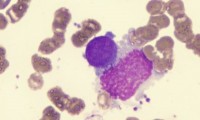-
Unitaid funds over £6m to Liverpool researchers to treat major diseases
- Source: drugdu
- 141
- April 10, 2024
-
KCL project receives £100,000 UK government funding to boost AI-assisted healthcare
- Source: drugdu
- 82
- April 9, 2024
-
Johnson & Johnson Set to Acquire Shockwave Medical, Aiming to Strengthen Company’s MedTech Division
- Source: drugdu
- 84
- April 8, 2024
-
World Health Organization launches AI-powered digital health assistant for public health
- Source: drugdu
- 127
- April 8, 2024
-
myTomorrows and brainstrust partner to support patients living with brain cancer
- Source: drugdu
- 113
- April 8, 2024
-
CellVoyant secures £7.6 million AI stem cell boost
- Source: drugdu
- 107
- April 7, 2024
-
Cellenkos links with Mount Sinai to explore CK0804 for myelofibrosis
- Source: drugdu
- 74
- April 5, 2024
-
Eisai to divest rights for two therapies to Kaken
- Source: drugdu
- 164
- April 5, 2024
-
Alexion’s Voydeya gains FDA approval for extravascular haemolysis
- Source: drugdu
- 129
- April 4, 2024
-
Researchers Present First Study Using Biomimetic AI Digital Twins
- Source: drugdu
- 144
- April 3, 2024
your submission has already been received.
OK
Subscribe
Please enter a valid Email address!
Submit
The most relevant industry news & insight will be sent to you every two weeks.













